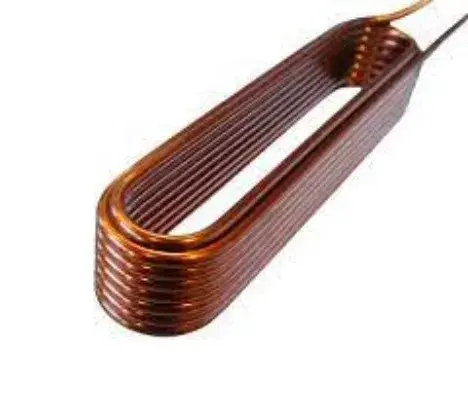Bare copper wire is the gold standard for grounding systems in residential, commercial, and industrial settings. Its unique properties ensure safety, durability, and compliance with electrical codes. Below, we explore why bare copper ground wire outperforms alternatives and how to choose the right type for your project.

1. Superior Conductivity
Copper boasts the highest electrical conductivity among non-precious metals, allowing it to efficiently divert fault currents into the earth. Unlike coated or insulated wires, bare stranded copper wire or solid bare copper wire eliminates resistance from coverings, ensuring a reliable ground connection.
2. Corrosion Resistance
Copper naturally resists corrosion, even in moist or acidic soil. For example, bare copper earth wire used in coastal areas retains conductivity for decades, unlike galvanized steel, which rusts over time.
3. Flexibility and Durability
Stranded bare copper wire: Ideal for tight spaces or vibrating machinery (e.g., industrial motors).
Solid bare copper wire: Provides rigidity for permanent installations (e.g., #3 bare copper wire in residential service panels).
4. Cost-Effectiveness
While initial costs are higher than aluminum, copper’s longevity reduces replacement expenses. Bulk purchases (e.g., bare copper wire spool) further lower costs for large projects.
1. Residential Grounding Systems
Bare copper ground wire size: #6 AWG (minimum for home panels) to #3 AWG for high-capacity systems.
Example: Home Depot sells bare copper wire for grounding in 25 ft coils, perfect for DIYers installing a ground rod clamp.
2. Industrial Machinery
Bare braided copper wire (flexible and robust) bonds heavy equipment to grounding grids, preventing static buildup in factories.
3. Telecommunications and Utilities
Bare copper stranded wire shields underground cables from lightning strikes. Utility providers often use bare copper earthing wire around transformers.
Wire Size and Configuration
Refer to the bare stranded copper wire size chart to match wire gauge with current load.
NEC Article 250 specifies bare copper ground wire size based on system voltage (e.g., #4 AWG for 200A service).
Solid bare copper wire: Best for fixed installations (e.g., grounding electrodes).
Stranded bare copper wire: Ideal for flexible connections (e.g., bonding jumpers).
Where to Buy
Retailers like Home Depot stock bare copper wire for sale in small quantities.
 The Critical Role of Winding C
The Critical Role of Winding C
 PEW/155 QZL-1 Degree 0.25mm- 5
PEW/155 QZL-1 Degree 0.25mm- 5
 Magnet Wire Information
Magnet Wire Information
 Enameled Copper Strap Coils Fo
Enameled Copper Strap Coils Fo